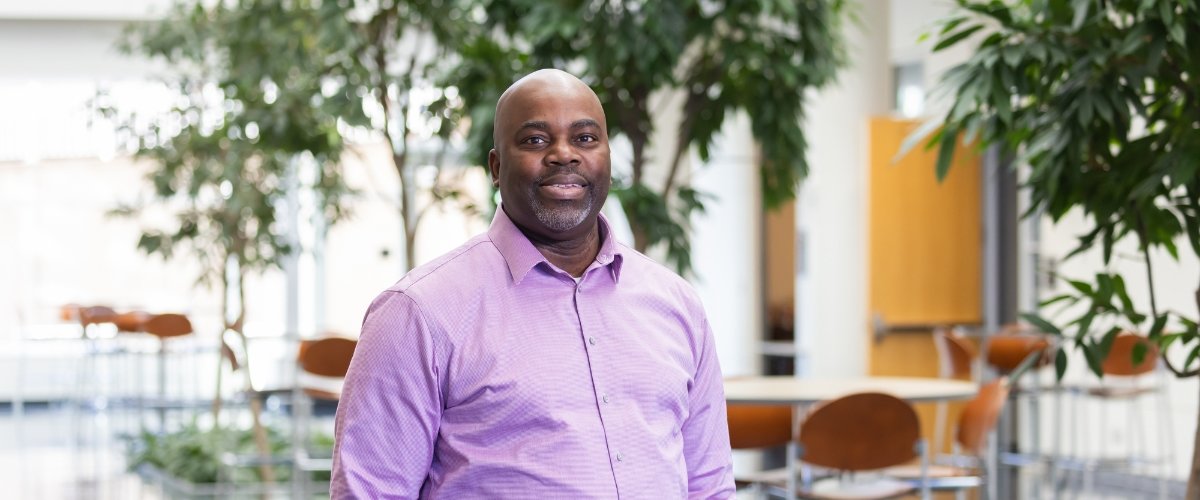
Expanding horizons

Patrice Bailey is Assistant Commissioner of the Minnesota Department of Agriculture. He chairs the Emerging Farmers’ Working Group to provide resources and assistance to farmers and rural community members facing barriers to entry in agriculture. His first role in Minnesota was with CFANS, supporting recruitment in agricultural education; he engages with the CFANS community through outreach programs including MANNRS and the Minnesota Youth Institute.
A breadth of role models
It was a conversation that my mom and I had when I was a senior in high school that got me into agriculture. My mom was a role model, in the sense of her tenaciousness of perseverance, but George Washington Carver was also a role model. Not only was he this amazing scientist, but he went to Iowa State, which I later went to as well.
An unexpected source of inspiration
I went to Prairie View A&M University, a historically Black university in Texas. And my professor took his class to the Worldwide Food Expo in Chicago. There, I saw that agriculture was more than farming. It was Coca-Cola; it was Glacier Water; it was Pepperidge Farm.
At the Pepperidge Farm booth, I saw Charlie Walsh; he was the older gentleman that used to be on the commercials when I was a kid. I see him and I’m like, “Oh my God, that's the guy!” So I spoke to him for an hour, and he told me about different ways I can broaden my worldview of agriculture. I was sold after that.
On stereotypes in agriculture
I go to different schools and talk to students about agriculture. I ask, “what does a farmer look like?” They tell me he's white, he has bib overalls, and he has dusty boots and a John Deere hat. And although it’s kind of funny and we laugh, [the stereotype] reminds me of “a dream deferred” by Langston Hughes. It limits where kids, especially kids of color, can dream—as to what the possibilities can be.
Advice for CFANS students of color
I would say, don't let your dreams be a dream deferred. The sky's the limit and there are so many possibilities in agriculture. It's not just your immediate community, it's feeding the world as we add an extra billion people. The demands on agriculture are going to be front and center.
On sharing Black stories
Diversity needs to be first and front and center, but not just diversity—equity. There's still more work that needs to happen, in terms of equity and courageousness in order to tell stories—not just in February. These are stories that should be told every day, every month.
In Advancing Agriculture, we ask members of CFANS’ Black community to share their pathways in agriculture. From student researchers to faculty members and alumni, their contributions to the field have an impact here in Minnesota and around the world.










